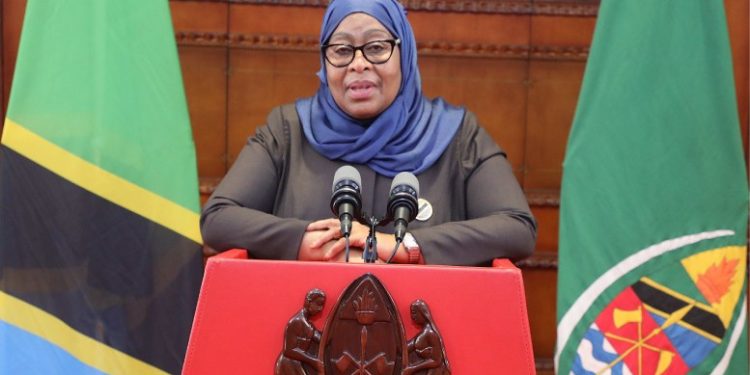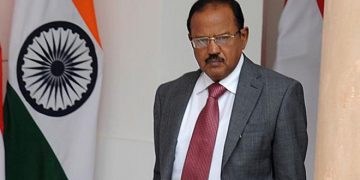There was no dearth of pomp and ceremony as President Mama Samia Suluhu Hassan took oath of office 3 November with the diplomatic corps attending the swearing-in proceedings. But unlike at previous swearing ceremonies, members of the public were conspicuous by their absence and that sums up the sad outcome of the democratic experiment in the African country, which has been trying to replace autocracy with democracy.
In fact, when Hassan had taken charge in 2001 in place of her autocratic predecessor, John Magafuli, she filled the country with new hope of democratic governance. But, now Tanzania has slipped into an even worse form of autocratic rule with extra-judicial killings, brutal suppression of Opposition activists and muzzling of the media being the order of the day. Key challengers Tundu Lissu of the largest Opposition party, Chadema, and Luhaga Mpina of ACT-Wazalendo, were barred from contesting and thereby eliminating any real threat to Hassan. Other presidential candidates on the ballot lacked political backing and had a mere shadowy existence. The results say it all, with Hassan securing 98 per cent of the votes making a mockery of democracy. For elections to be credible, the electoral procedures and processes need to be certai,n while the result or outcome needs to be uncertain. In Tanzania, the opposite has been proven true. Everyone knew the electoral outcome that the incumbent Mama Samia Hassan will be announced winner after elections. It is difficult to get a clear picture of what is happening in Tanzania due to a nationwide internet shutdown, but videos circulated by rights groups show piles of corpses on the streets and young protesters with bullet wounds. According to an unconfirmed estimate, over 1,000 people have been killed in poll-related violence.
The Tanzanian authorities have, as is usual with such governments worldwide, denied excessive use of force. Before his arrest in April, Lissu had been holding rallies raising the slogan – “No reforms, no elections.” His American lawyer, Robert Amsterdam, says the Opposition leader — who survived being shot 16 times in a 2017 assassination attempt – faces the death penalty if convicted of treason. He is now languishing in solitary confinement in jail. The irony is when President Hassan first succeeded authoritarian Magufuli — who was nicknamed “the Bulldozer” — many Tanzanians were hopeful the country was on a more democratic path. She also tried to live up to the people’s expectation by introducing a number of reforms, including ending bans on political rallies, repealing repressive laws around the media, and releasing Lissu’s Chadema predecessor from prison. But the 65-year-old Hassan, who is Tanzania’s first female leader, has turned out to be worse than her predecessor. Her son Abdul Halim Hafidh Ameir is believed by many to have overseen the crackdown, following the pattern of several Prime Ministers in Asia abusing democracy and letting their sons and daughters enjoy extra-constitutional authority. The current situation in Tanzania prompted Pope Leo to give a call from the Vatican for an end to the post-poll violence in the country. He has urged everyone to shun all forms of violence and pursue the path of dialogue. Sadly, the African Union has not condemned the elections.
On the contrary, it issued a statement congratulating President Hassan, while numerous African heads of state attended her inauguration. The fact that schools remain closed and public transport halted 3 November with a full internet blackout continuing, is evidence of the high-handedness of the regime. Tanzania is one of the several African countries to hold disputed elections this year that have resulted in unrest.
Last month, Cameroon elections saw 92-year-old President Paul Biya re-elected for an eighth term, while Ivory Coast’s 83-year-old Alassane Ouattara won a fourth term, having barred Opposition heavyweights from running. Some may say international pressure needs to be mounted on the Tanzanian President so that the hope of the survival of the fledgling democracy in that continent is not blighted but the fact remains that institutions are demolished by the common people everywhere. These institutions alone can save the common citizen from barbaric rulers who come up under the guise of democracy.






































